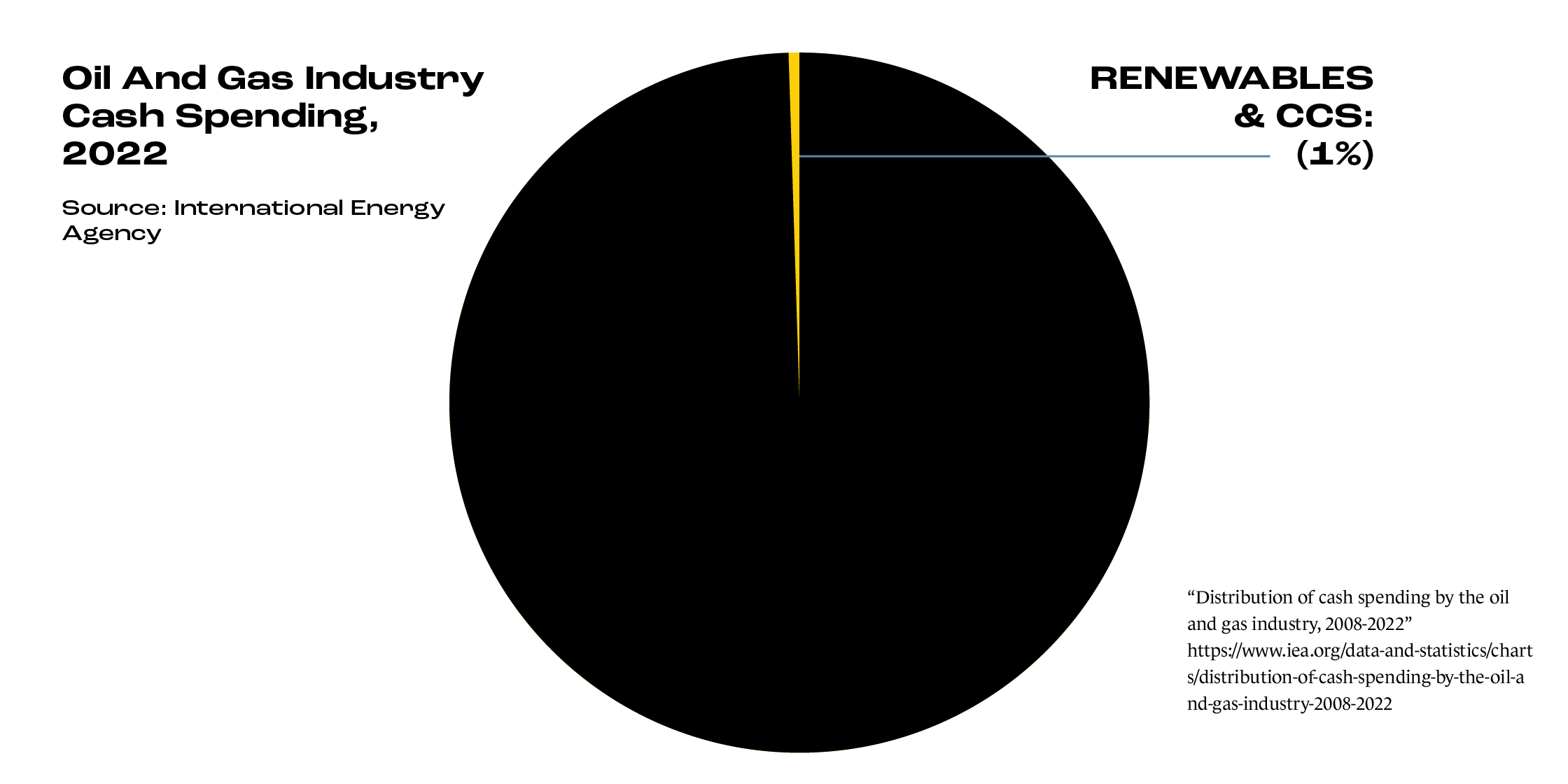
HOW AGENCIES WORKING FOR FOSSIL FUEL POLLUTERS CONTRIBUTE TO CLIMATE CHANGE
The scientific consensus: fossil fuel advertising and PR is contributing to the climate emergency
In early 2022, the United Nations’ Intergovernmental Panel on Climate Change (IPCC) gave the world a clear final warning that we must act now to avoid climate disaster.
The sixth installment of their global report, which represents the current scientific consensus on climate change, made headlines for declaring a climate emergency, but also for offering hope that if we take urgent action to reduce carbon pollution, we can secure a liveable future for all. The IPCC says this can only be achieved with “major transitions in the energy sector [including] a substantial reduction in fossil fuel use.”
The IPCC report spoke directly to the communications and PR industry, saying that “the media shapes the public discourse about climate mitigation” and that fossil fuel PR and marketing should come to an end.
The report highlighted that fossil fuel marketing uses “climate-care statements” and “deflect[s] corporate responsibility to individuals” to greenwash and make climate change feel like our personal responsibility, rather than an obligation for corporate and government leaders.
Later in 2022, UN Secretary General Antonio Guterres addressed the UN General Assembly and declared that: “we need to hold fossil fuel companies and their enablers to account. [This] includes the massive public relations machine raking in billions to shield the fossil fuel industry from scrutiny.”

FOSSIL FUELS 101:
Roughly 3/4ths of dangerous carbon pollution is caused by the energy sector, and they are planning to continue increasing their pollution.
We do not need new fossil fuel projects to meet global energy needs under the Paris Climate Agreement.
Fossil fuel pollution is responsible for approximately 8.7 million premature deaths per year.
The severe effects of climate change are already happening, and need to be stopped.
Big Oil’s Climate Rollback:
Since 2022, fossil fuel companies have rolled back their commitments to clean energy, and made clear statements to investors, regulators, and the public that they will continue focusing on polluting products, no matter the impact on the planet.
In 2022, Russia’s invasion of Ukraine changed the global energy market, leading to higher gas prices and record profits. Once fossil fuel giants started doubling their earnings, they stepped back from their climate pledges and focused on exploration and expansion, instead of using that money to invest in renewables.
For example, BP announced in 2020 that “we are heading to net zero. There is no turning back” and pledged to reduce fossil fuel production and emissions, but in 2023, they rolled back their investment. Shell did the same, by making a net zero commitment in 2020 but announcing that they will be increasing fossil fuel production in 2023.
The World Benchmarking Alliance’s research shows that, since 2021, “the oil and gas sector has made almost no progress towards the Paris Agreement goals.” They have observed “a dangerous lack of progress…and alarmingly even some decline in oil and gas companies’ progress on limiting global warming to 1.5 degrees.” In 2021 and 2022, oil and gas companies only invested 1% of their cash expenditures in low-carbon technologies.
In his 2023 TED Talk, Al Gore asked the fossil fuel industry, “Do you take us for fools?...The climate crisis is a fossil fuel crisis. The solutions are going to come from a discussion and collaboration about phasing out fossil fuels and there is only so much longer they can hold this down and tie us down and keep us from doing the right thing.”

Why the Heat is On for Fossil Fuel Agencies
The fossil fuel industry is failing to pursue a clean energy transition.
In fact, they are doing the opposite, reinvesting in fossil fuel development and rolling back clean energy pledges. This failure raises serious questions for the industry’s future and for any agencies that rely on fossil fuel clients for revenue. An industry that is so far out of step with scientific, economic, and political consensus cannot be relied on as a source of revenue.
In the past few years, there have been a record number of legal cases and over 100 global initiatives to ban fossil fuel ads and hold companies accountable for misleading marketing.
Our report Smoke and Mirrors details how agencies and PR firms’ dirty work for Big Oil is leading them to face substantial legal and regulatory risks. As of May 2023, there have been 2,341 ongoing or concluded climate litigation cases across the globe.
A key element of these cases involves the industry’s awareness of their contribution to climate change. In the past few years, investigations have revealed that ExxonMobil, Shell and TotalEnergies knew that burning fossil fuels was causing climate change since the 1970s.
Fossil fuel advertising and PR still does not match business reality. Shell has admitted that their “operating plans and budgets do not reflect Shell’s Net-Zero Emissions target” that is widely featured in their advertising. In 2020 and 2021, 80% of Chevron advertisements mentioned sustainability, while only 1.8% of their capital spending went to non-oil and gas projects.
The legal risk for fossil fuels can be simply summed up as: they knew, they lied, and now courts will force them to pay.
Now, the ad and PR industry has been similarly warned about the danger of the products they provide to fossil fuel companies.
As consultants increasingly become embroiled in legal cases targeting fossil fuel majors, fossil fuel agencies should be wary of the possibility of assuming serious liabilities. Communications agencies now know about their climate impact; the main question is whether they will also be forced to pay for it.
What’s more, regulatory space for fossil fuel work is shrinking.
The UK’s Advertising Standards Authority has issued updated guidelines that warn advertisers against making misleading or unsubstantiated carbon neutral or net zero claims and has banned ads which greenwash from Shell, Repsol and Petronas. South Korea became the first nation in East Asia to draft a law to fine companies up to $2300 for greenwashing.





